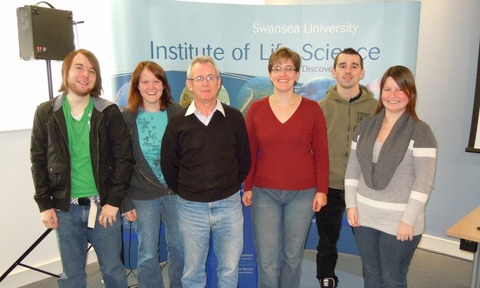
Scientists at Swansea University have used the MO BIO RNA PowerSoil Total RNA Isolation Kit to investigate bacteria.
Dr Geertje van Keulen, Lecturer in Biochemistry at Swansea University, studies the biology of Streptomycetes.
These filamentous soil bacteria produce secondary metabolites that include around 70 per cent of all the naturally occurring antibiotics, as well as numerous other clinically useful compounds such as anti-helminthic and anti-cancer agents.
Kate Bell, a PhD student in Dr van Keulen’s lab at the Institute of Life Science at Swansea, has researched the production of secondary metabolites by Streptomyces coelicolor using RNA as an indicator of gene expression.
Anticipating that the presence of humic acid and other inhibitors in soil would cause problems in downstream reactions, Kate Bell tested three different protocols for RNA extraction from S. coelicolor microcosms, in order to optimise results.
One of the protocols used MO BIO’s RNA PowerSoil Total RNA Isolation Kit from Cambio. With this kit the total RNA yield after separation of RNA samples by electrophoresis under denaturing conditions was calculated as 13.8µg, compared with only 9.9µg and 9.6µg obtained from protocols based on RNA isolation kits from two other manufacturers.
Following RNA electrophoresis of a 1.5µg sample from each of the three protocols, RNA extracted using the MO BIO PowerSoil kit showed discrete 16S and 23S bands, whereas smearing indicated the degradation of the RNA obtained via both of the other protocols.
The MO BIO protocol was the only one of the three to produce RNA suspensions without the brown colour indicative of the presence of humic acids, and was therefore used by Kate Bell for all subsequent RNA isolations from soil.
The work of Geertje van Keulen and Kate Bell is helping elucidate the clinically important secondary metabolism of S. coelicolor, as well as the way in which certain actinomycete pathogens respond to oxygen limitation during infection.




